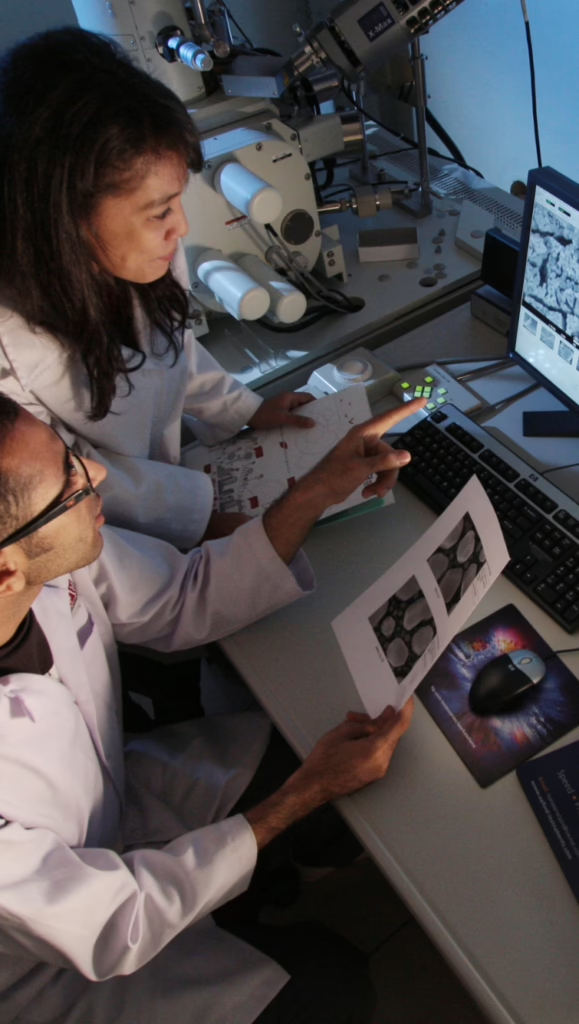Your brain may have just gone “my relationship with what? Which would be a normal response to an abnormal question. It forces active processing and hopefully prevents an autonomic answer.
Everything in this universe is about relationships. You are relating to everything. The nature of which dictates your experiences. You have a relationship with me. To the people in the room. To your job. To your car. To yourself. To ideals. Even to this device.
Relationship expert Esther Perle says the quality of our life is directly related to the quality of our relationships. She means, of course relationships between people, and I believe we can extend this idea towards ANY relationship to anything. Including our problems.
Reframing some of our struggles, issues, and problems through a relationship lens creates a different dialogue. It generates new narratives. We see our phenomenology from a slightly different vantage point. By doing, we can produce meaningful insight. Insights that move how we think and relate to the world around us. This is a catalyzing process of paradigm shifting to create change.
This article series explores commonly problematic relationships within our life domains. My intention is offer a new paradigm for approaching problems without pathologizing our human experience. Questions are self reflective. There is no right answer. No grade. Feel free to take what is useful to you and to leave behind what is not.

Let’s look at technology from two helpful perspectives so we can see the difference in lens between a traditional material health view and an intrapersonal relational view.
Both views are productive and both views have value.
To gain a deeper understanding of your relationship with technology, consider reflecting on these questions, inspired by various perspectives on the topic:
Reflecting on Your Use and Habits:
- How much time do you spend using technology each day, and how does that make you feel?
Are you aware of your technology usage patterns, and do you feel they are balanced with other aspects of your life? - What are your primary reasons for using technology?
Is it for work, leisure, communication, or a combination of factors? Understanding your motivations can help you identify potential areas for change. - What are the first things you do when you wake up and the last things you do before you go to sleep in relation to technology?
This can reveal how integrated technology is into your daily routine. - Do you find yourself reaching for your phone or other devices when you’re feeling bored, anxious, or lonely?
If so, this could indicate a reliance on technology for emotional regulation. - How does technology affect your sleep patterns and overall well-being?
Are you experiencing any negative impacts on your physical or mental health due to your technology usage?
Examining Your Emotional Connection:
- How does technology make you feel?
Does it bring you joy, stress, or a mix of both? Understanding the emotional impact of technology can help you manage your relationship with it. - When was the last time you felt happy or connected while interacting with technology?
Reflecting on positive experiences can help you appreciate the benefits of technology. - When was the last time you felt sad, frustrated, or anxious due to technology?
Identifying negative experiences can help you understand potential triggers and develop coping mechanisms. - Do you feel a sense of disconnect or alienation from others when you’re using technology?
Consider whether technology is hindering your ability to connect with people in meaningful ways. - How has technology influenced your relationships with family and friends?
Has it strengthened or weakened your connections?
Assessing Your Values and Priorities:
- What is your ideal relationship with technology?
How do you envision technology fitting into your life in a way that aligns with your values and priorities? - What are the benefits and drawbacks of technology in your life?
Consider both the positive and negative impacts of technology on your personal and professional life. - What are your personal boundaries around technology use?
Do you have specific times, places, or situations where you limit or avoid technology? - How do you think technology is shaping your identity and worldview?
Reflect on how technology may be influencing your values, beliefs, and sense of self. - How can you use technology to support your goals and aspirations?
Consider how technology can be a tool for personal growth, productivity, and creativity.
Considering the Broader Implications:
- How do you think technology is impacting society as a whole?
Reflect on the potential benefits and drawbacks of widespread technology adoption. - What are your thoughts on the ethical implications of technology?
Consider issues such as privacy, data security, and the potential for bias in algorithms. - How can you use technology to make a positive impact on the world?
Explore ways to use technology for social good, such as volunteering, advocacy, or creative projects. - What are your hopes and concerns about the future of technology?
Reflect on the potential advancements and challenges that lie ahead. - How can you promote a healthy and responsible relationship with technology for yourself and others?
Think about ways to educate yourself and others about the potential impacts of technology.

To better understand your relationship with technology as if it were a person-to-person relationship, consider these questions:
Foundation & Initial Attraction:
- When did you first meet “technology” and what initially drew you in?
Think about the first time you truly engaged with technology (computer, smartphone, internet, etc.) and what aspects of it captured your attention and interest. - What are the core values and principles you seek in a relationship, and how does technology align (or not) with those values?
Consider your personal values (e.g., honesty, respect, support, growth) and reflect on how technology contributes to or detracts from these values in your life. - What is your “love language” in relationships, and how does technology express or fail to express that language?
Consider how you prefer to receive affection, support, or validation in relationships, and how technology can be used to fulfill or neglect these needs.
Communication & Connection:
- How do you communicate with technology?
Consider the ways you interact with technology (e.g., texting, social media, online searches, gaming) and how effectively you feel you can express yourself and receive feedback. - What are the barriers to effective communication in your relationship with technology?
Reflect on any challenges in expressing your needs or understanding technology’s “responses” (e.g., technical difficulties, algorithm-driven content, lack of empathy). - How does technology influence your ability to connect with other people in your life?
Assess how technology affects your face-to-face interactions, your relationships with loved ones, and your overall social life. - Do you feel heard and understood by technology?
Think about whether you feel technology truly considers your needs and preferences, or if it feels more like a one-way street.
Boundaries & Expectations:
- What are your boundaries with technology?
Consider the specific times, places, or activities where you choose to engage with technology and those where you choose to disconnect. - What are your expectations of technology in your life?
Reflect on what you hope to gain from your relationship with technology (e.g., convenience, entertainment, connection, information) and whether it consistently meets those expectations. - Are there any areas where you feel technology is demanding too much of your time or attention?
Assess if your relationship with technology is balanced, or if it’s becoming a source of stress or conflict in your life. - How would you describe the power dynamics in your relationship with technology?
Reflect on whether you feel in control of your technology use or if it feels like it’s controlling you.
Growth & Development:
- How has your relationship with technology evolved over time?
Consider how your use of technology has changed since you first started engaging with it and what factors have influenced these changes. - What are the areas where you feel technology has helped you grow or learn?
Reflect on any positive impacts of technology on your life, such as improved communication, increased access to information, or new skills you’ve acquired. - What are the challenges or areas where you feel you need to improve your relationship with technology?
Identify any aspects of your relationship with technology that you’d like to change or address, such as reducing screen time, improving digital literacy, or managing technology-related stress. - How can you nurture and strengthen your relationship with technology to make it more positive and fulfilling?
Consider strategies for creating a healthier and more balanced relationship with technology, such as setting boundaries, practicing mindfulness, and seeking support when needed.
Reflection & Future:
- What are you grateful for in your relationship with technology?
Acknowledge the positive aspects of your technology use and appreciate the benefits it brings to your life. - What are your fears or anxieties about the future of your relationship with technology?
Reflect on any concerns you have about the potential impact of technology on your life, relationships, or society.
By thoughtfully engaging with these questions, you can gain a deeper understanding of your relationship with technology, identify areas for improvement, and create a more balanced and fulfilling life in the digital age.

Hopefully, you can see the difference in your answers and that in the process of answering them you have generated a new insight.
If this was helpful please let me know and feel free to share any thoughts you might have. Subscribe for additional article notifications on improving life experience through relationship paradigm, grappling with existential issues, and mental health counseling with David Head. Share with friends and family by copy and pasting this link.
If you are interested in working with me directly for mental health counseling or coaching please complete a contact form and I will personally respond to introduce myself and to share how to make an appointment request.
Looking forward . . .
